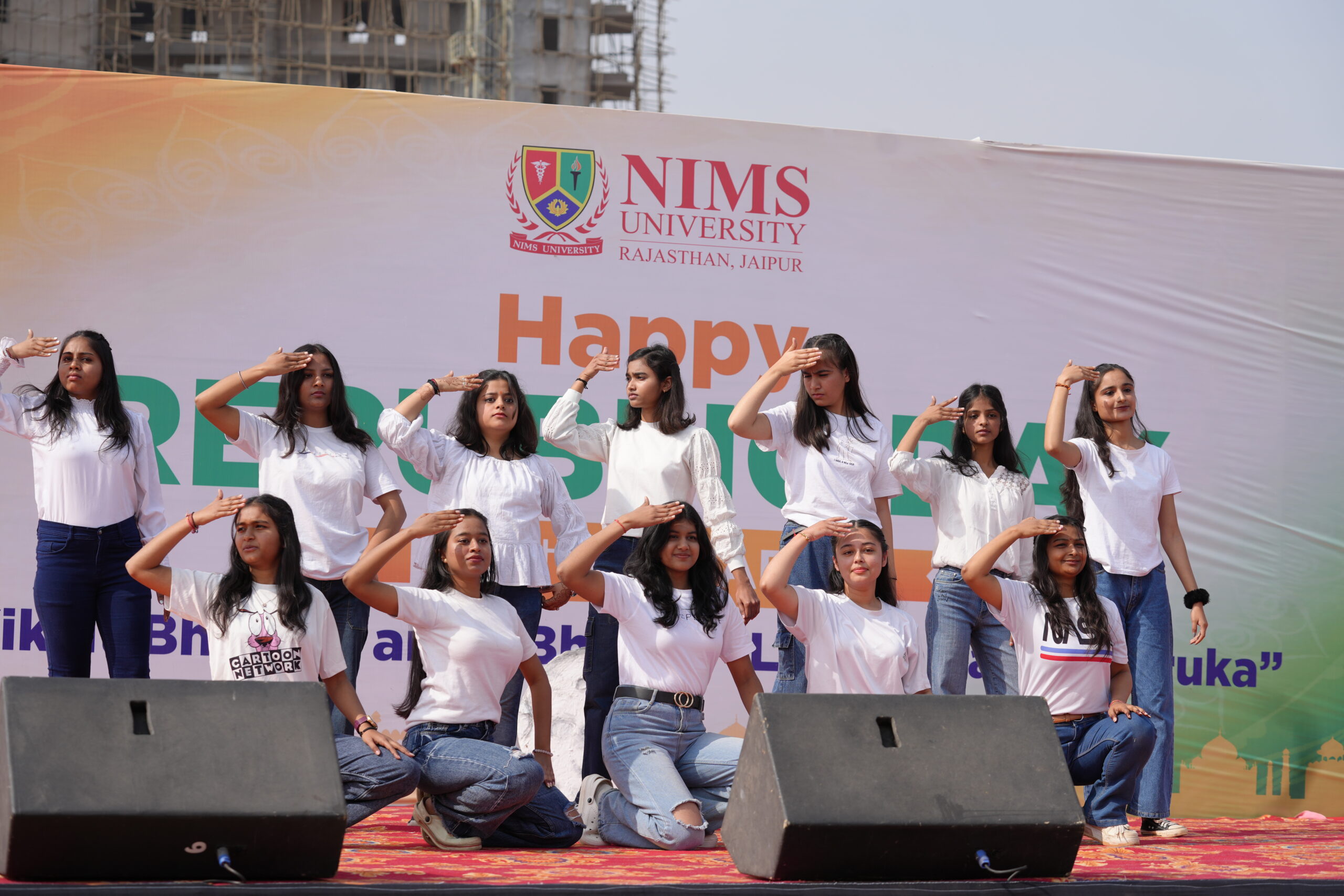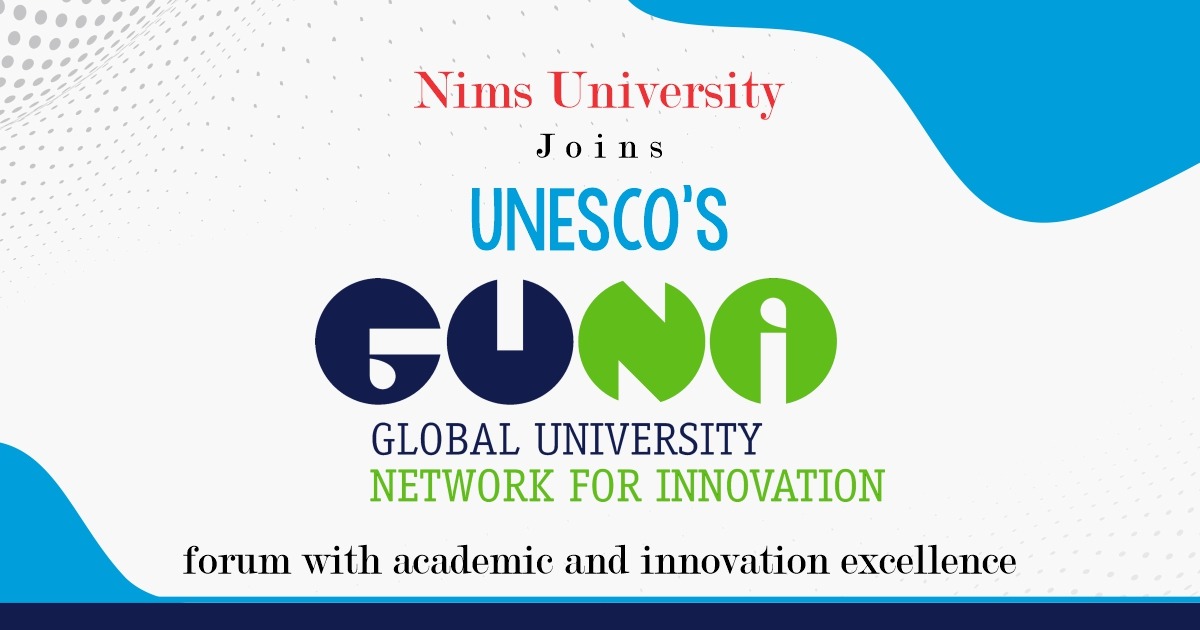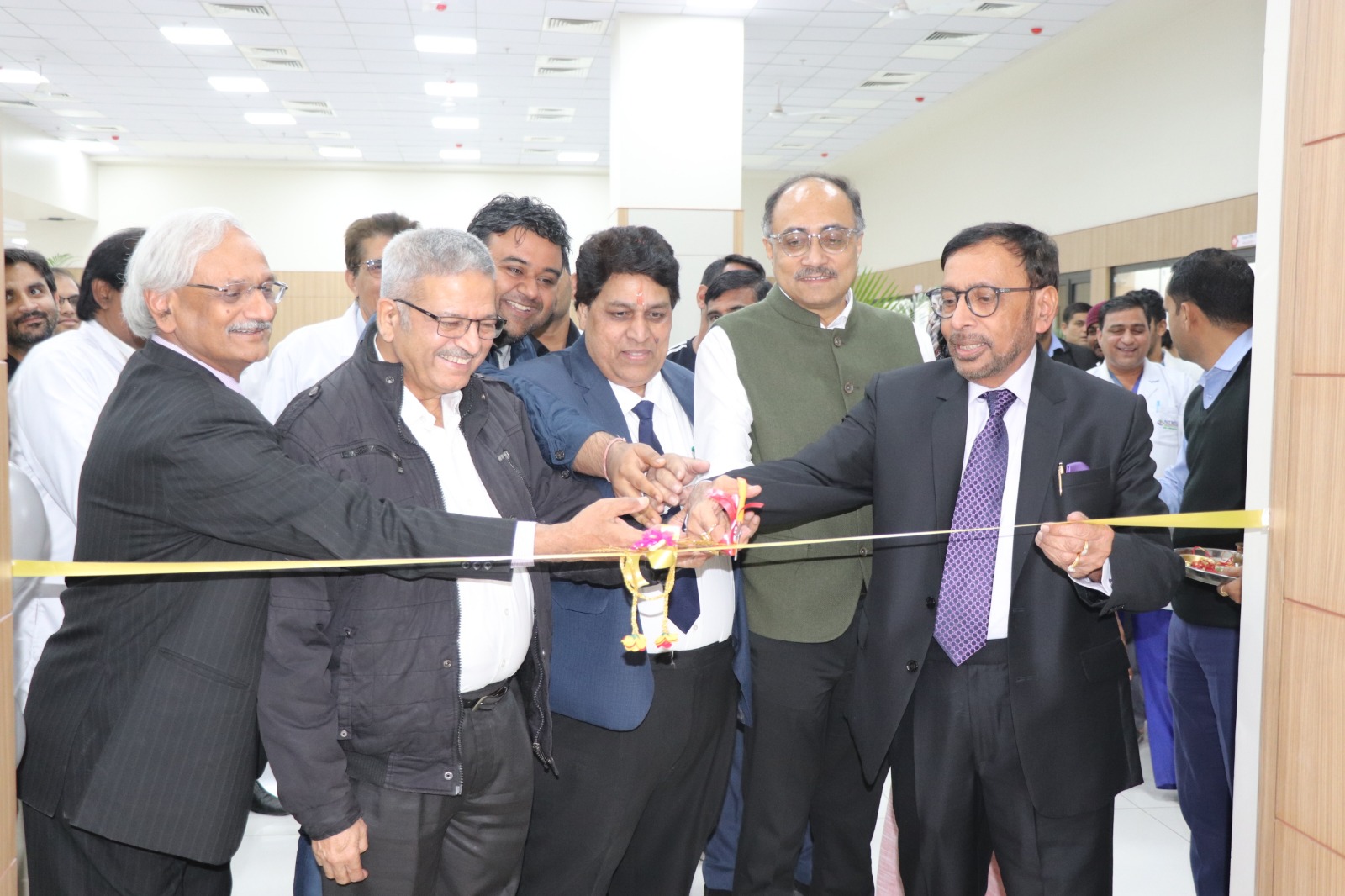“Global warming is a transition nightmare for countries like India” – Dr. B.S. Tomar
NIMS University Rajasthan’s Department of Microbiology successfully concluded ‘RAJMicrocon 2023,’ its two-day annual conference hosted at the Rajeshwari Auditorium. Dr. V.M. Katoch, the Former Director General of ICMR, graced the occasion as the chief guest along with the special guest Dr. Sonal Saxena, Professor and Department Head of the Microbiology Department, Maulana Azad Medical College. ‘RAJMicrocon 2023’ undoubtedly provided a significant platform for the exchange of knowledge and insights in the field of medical biology.
The theme of the Rajasthan Microcon 2023 conference was Microbe: Invisible to Invincible. The two-day conference also featured pre-conference workshops that featured discussions on practical learning patterns and a distinguished range of national and international experts. The Conference started with a Student Symposium and Debate Competition, the first symposium of the session was on the importance of Artificial Intelligence in health, in this Pre-conference Workshop 40 students and professionals from various medical colleges took an active part under the leadership of Dr. Ramesh and Dr. Nisha Rathore.

Dr. V.M. Katoch – Former Director General- of ICMR, was the Chief guest and keynote speaker of the conference said in his address, “Through strengthening health systems with effective management, enhanced collaboration across agencies, sectors and all levels of government and implementation of regulatory mechanisms Only then can the challenge of mycological diseases in India be addressed.” He also highlighted the timeline of notable outbreaks of newly identified emerging infections and diseases in humans in new areas between 2003 and 2022.
People are responding to ecological changes which are leading us towards various diseases. Climate change is increasing the risk of potentially infectious diseases in humans. Our defenses are beginning to weaken and the population is becoming more vulnerable to infection. According to research According to – “Not even a decade passes in which we are not faced with the threat of a new serious disease -“
Infections reflect dynamic balances and imbalances within complex globally distributed ecosystems involving humans, animals, and the environment. To successfully control emerging/re-emerging infectious diseases, the best strategy is to understand their potential and prevent their spread at an early stage.
Pro. (Dr.) Balveer S. Tomar, Chancellor and Chairman of Nims University welcomed the chief guests present at the conference and expressed his enthusiasm for the leading microbiologist from Rajasthan. Expressing his views on Mycology: Emerging Fungal Infections and Climate Change, he said, “Microorganisms are diverse and adapt to almost every situation. For mankind, microbiology literacy is of utmost importance. Dr. Tomar shared the common Highlighting of the average microbiology understanding to the public so that it does not hinder them in public decision-making, and does not interfere with policymakers in government in critical situations.
He further said – Today’s topic is not only much-discussed but also a matter of concern and since we are talking about global warming and the increasing fungal infections due to it, then I want to share with you all, “Fungal infections due to global warming increase the risk of fungus up to 90 percent and there is a possibility of different types of infections due to climate change” and this affects all aspects of the ecosystem because some species of fungus are always present in all aspects of the ecosystem.
The progress we have made in understanding and mitigating the impact of fungal infections in our changing climate has far-reaching implications for public health and well-being. Now is the time that we should be aware of any risky behavior that exposes us to the dangerous fungus and seek detection as well as prevention and medical advice.
Dr. Sumi Nandwani, Department of Microbiology, PGICH Noida, while sharing her views on the theme of the symposium, said that Artificial Intelligence is bringing significant revolutionary changes in the way healthcare is provided and managed. I help healthcare experts make data-driven decisions, leading to better resource utilization, better patient experiences, and the potential to save lives in time. He also emphasized thinking about AI suggestions and challenges.
Panel discussion topics at the conference included: Investigation of the Covid-19 outbreak, rising viral infections, new and old Tuberculosis acute encephalitis of AMSP in various hospitals of Rajasthan, syndromic approach for sexually transmitted infections, antimicrobials The growing burden of resistance – could probiotics be part of the solution? Fecal Microbiota Transplant Therapy in Inflammatory Diseases, From Patient to Advocate: Development of Phage Therapy in India, Antibiotic Resistance and Recent Trends in Bacteriophage Therapy, etc.
In this conference featuring 50 oral presentations and 50 poster-making contestants from various institutes across Rajasthan, the participants showcased their academic prowess. In the realm of oral presentations, Dr. Ayushi secured the first-place position, followed closely by Dr. Priyam Batra in second place, and Dr. Soumya Nigam got third position. On the poster-making front, Maitrayee Narayan emerged as the top contender, with Dr. Harshita Pandey got second place. Muskaan Bhardwaj and Ayekpam Hinewa both clinched the third spot, showcasing the exceptional standard of competition.
Experts highlighted the urgent need for awareness about bacteriophages and their potential role in addressing AMR. Workshop Coordinator and Dean of the Department of Microbiology, Dr. Rama Chaudhary stressed the need for collaboration with national and international bodies to make phage therapy accessible to patients facing multi-drug resistant infections.
The conference concluded with cultural programs and an Annual Meeting. In this conference, Dr. Shiva Prasad Reddy -Treasurer, Dr. Vibhor Tak, Dr. Sanjana Sumani, Dr. Bharati Malhotra, and Dr. R.K. from the Scientific Committee and Organizing Committee. Maheshwari, Dr. Yogesh Kumar Gupta, Dr. Shruti Sharma, Dr. Babita, Dr. Ankit Pradhan, Dr. Grace, Dr. Yogesh Srivastava, Dr. Kishori from the Dept. of Microbiology were present.








